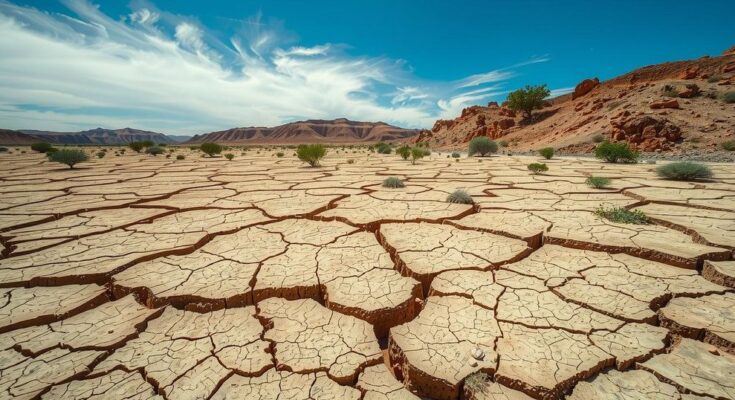A study reveals that climate change has significantly increased the frequency and severity of heatwaves in South Sudan, affecting women and girls disproportionately. Political instability and inadequate resources exacerbate the humanitarian crisis, as extreme temperatures soar, making daily survival challenging for the populace. These conditions hint at a troubling ‘new normal’ of extreme climate events in the region.
A recent study indicates that human-induced climate change has significantly increased the likelihood of the ongoing heatwave in South Sudan, adversely affecting women and girls the most. The nation continues to struggle with insecurity and instability since its independence in 2011 and remains ill-prepared to tackle growing environmental disasters.
The extreme heatwave has coincided with escalating political unrest, raising concerns over the stability of a 2018 peace agreement that concluded a prolonged civil war. Reports indicate that February temperatures soared up to 40 degrees Celsius (104 degrees Fahrenheit), leading to the closure of schools in the capital city, Juba, where an average of 12 students collapsed daily.
According to the World Weather Attribution study, climate change has escalated the extreme heat by at least 2 degrees Celsius and made it at least ten times more likely to occur. Kiswendsida Guigma, a climate scientist involved in the study, highlighted that climate change is exacerbating the already challenging conditions in South Sudan, compounding the nation’s economic difficulties.
Moreover, many citizens work outdoors under oppressive conditions, as substantial numbers live in homes without air conditioning, making it increasingly difficult to adhere to government directives to remain indoors. The World Bank reported that electricity access in South Sudan stood at a mere 8.4 percent in 2022, with women and girls particularly burdened by daily responsibilities such as water collection and cooking.
Elizabeth Lodou Lochapio, a resident of Kapoeta, expressed that women are facing severe challenges, stating, “They have to go out there to make a living despite the heat wave.” Additionally, researcher Sarah Kew described the aftermath of climate change, asserting that such extreme heatwaves are becoming a regular occurrence in South Sudan, with these high-temperature events now emerging every two years. The heatwave is projected to continue until March, adding to the existing challenges hunting the population.
The recent study underscores the severe impact of climate change on vulnerable populations in South Sudan, especially women and girls. The heatwave, intensified by climate change, showcases the urgent need for both immediate humanitarian assistance and long-term strategies to mitigate climate risks. As South Sudan navigates ongoing political challenges, addressing environmental concerns remains crucial for the nation’s future stability and wellbeing.
Original Source: www.webstercountycitizen.com




